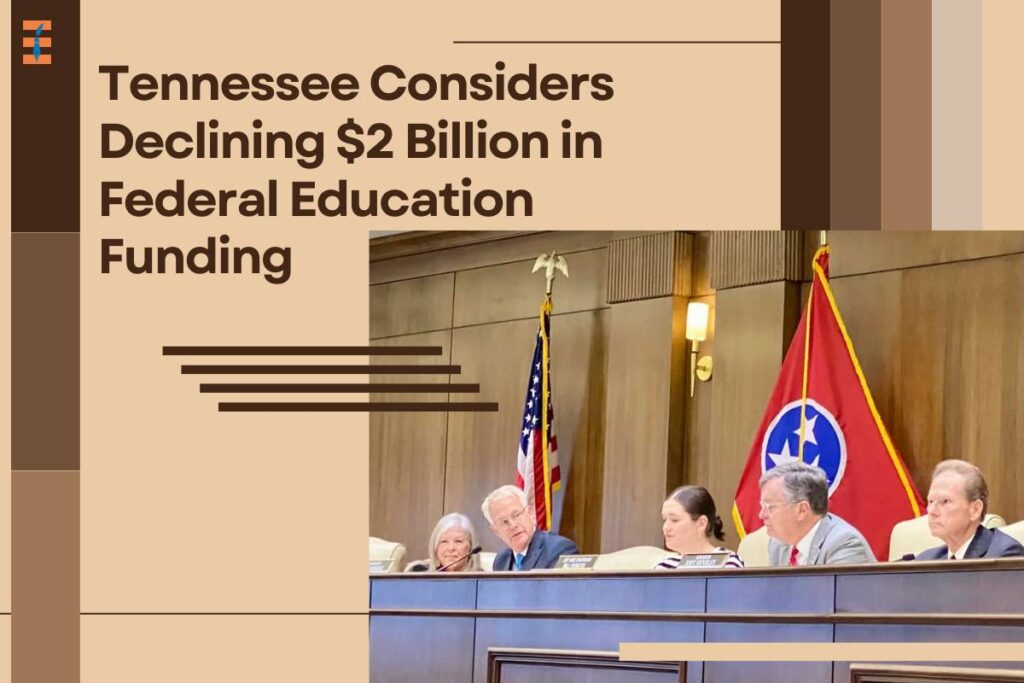Tennessee is deliberating the possibility of rejecting nearly $2 billion in federal education funding, sparking a contentious debate over the state’s autonomy in education. A task force, comprising members from both the House and Senate, will commence discussions on this issue, seeking to determine whether the state can fund education “without any strings attached.”
Federal Government Interference
House Speaker Cameron Sexton has been a vocal proponent of this idea, asserting that Tennessee can replace the federal education funding with state dollars. Sexton introduced a bill to explore this notion in the previous legislative session. He contends that rejecting the federal education funding would allow Tennessee to educate its children according to its own vision, free from “federal government interference.”
While federal dollars constitute a relatively small portion of Tennessee’s K-12 education funding, which boasted an almost $8.3 billion budget in fiscal year 2023, the federal funds play a crucial role in supporting schools in low-income areas and financing special education programs.
Policies Hurting Tennesseans
Nevertheless, critics argue that this move could adversely affect Tennesseans, particularly in low-income areas. “These policies are hurting Tennesseans across our state,” says Rep. Bob Freeman (D-Nashville), who is opposed to the rejection of federal funds. He expresses concerns about the lack of clarity regarding what specific “strings” are attached to the funding.
In Wilson County, federal education dollars are integral in financing various aspects, including special education, teacher salaries, the ROTC program, and subsidized lunches. Should the proposal be pushed forward by Republican leadership, Tennessee residents may not fully benefit from the federal taxes they pay.
Tennessee — to be the First State to Successfully Refuse Federal Education Funding
This proposal marks a bold step, as Tennessee could potentially become the first state to successfully refuse federal education funding. Similar discussions have arisen among GOP officials in other states, such as Oklahoma and South Carolina.
However, it’s important to note that the U.S. Constitution designates public education as a state responsibility, despite the requirement for states to adhere to federal laws. This conflict highlights the ongoing tension between states’ desire for autonomy and the federal government’s role in education.










